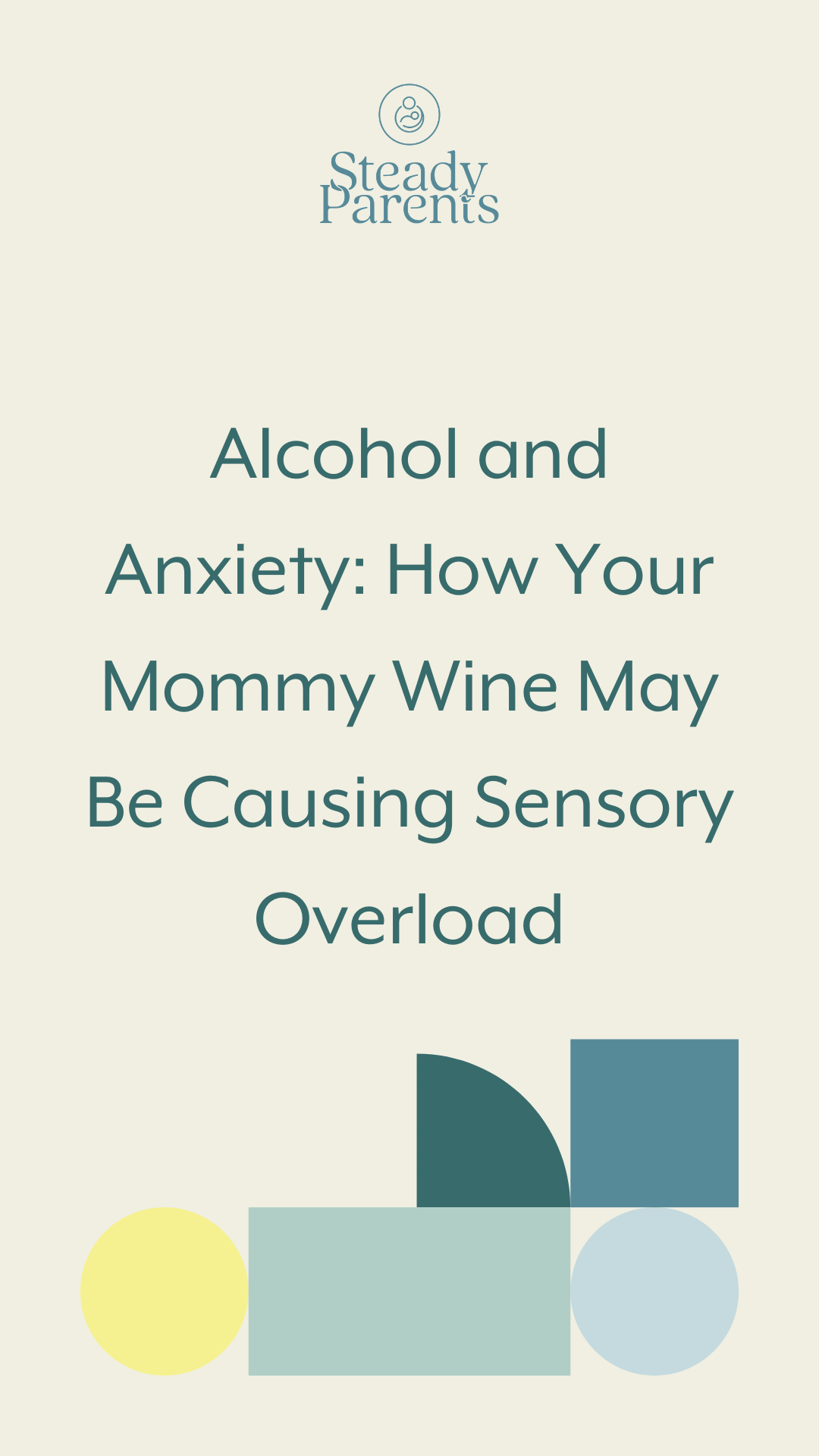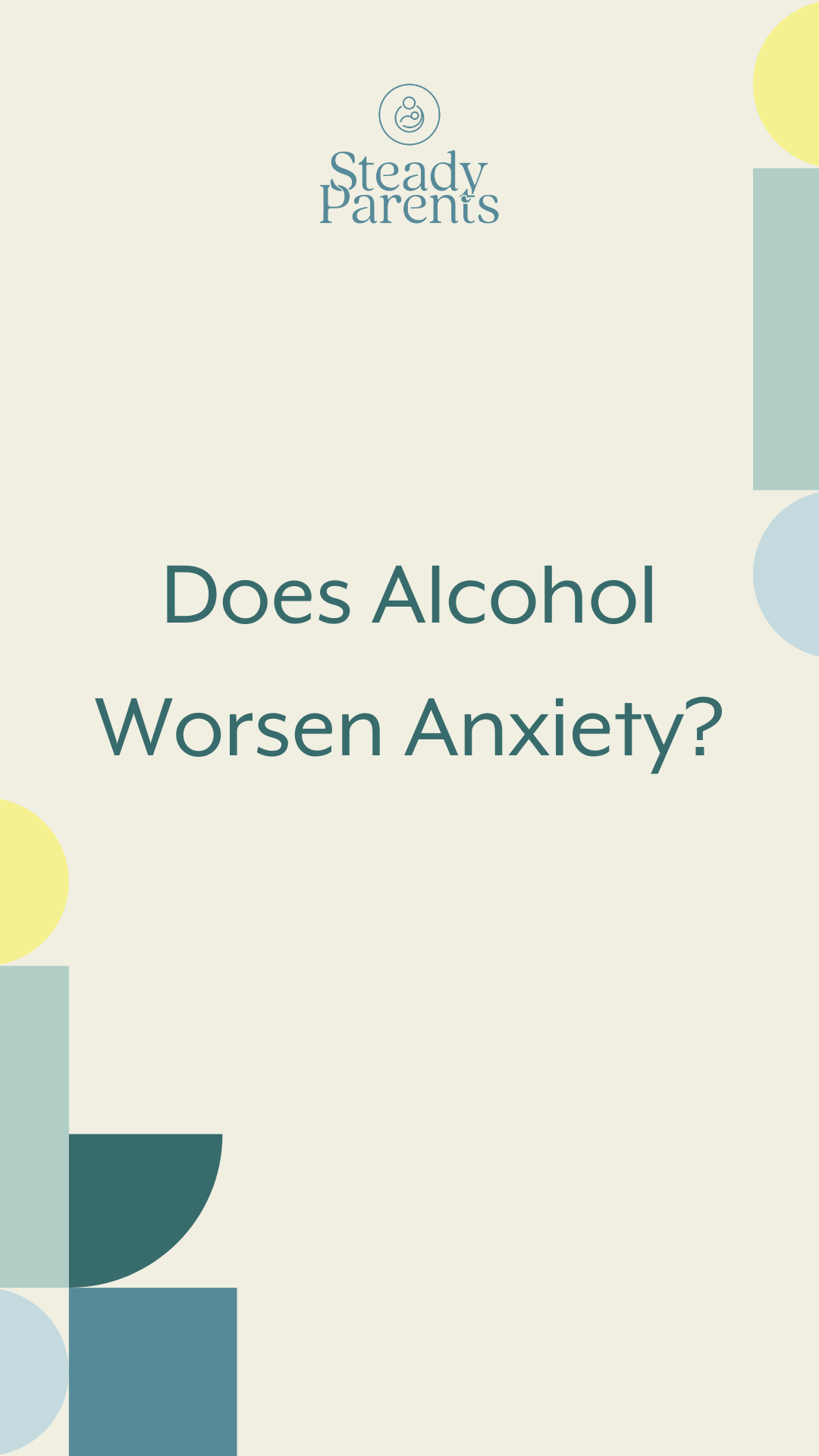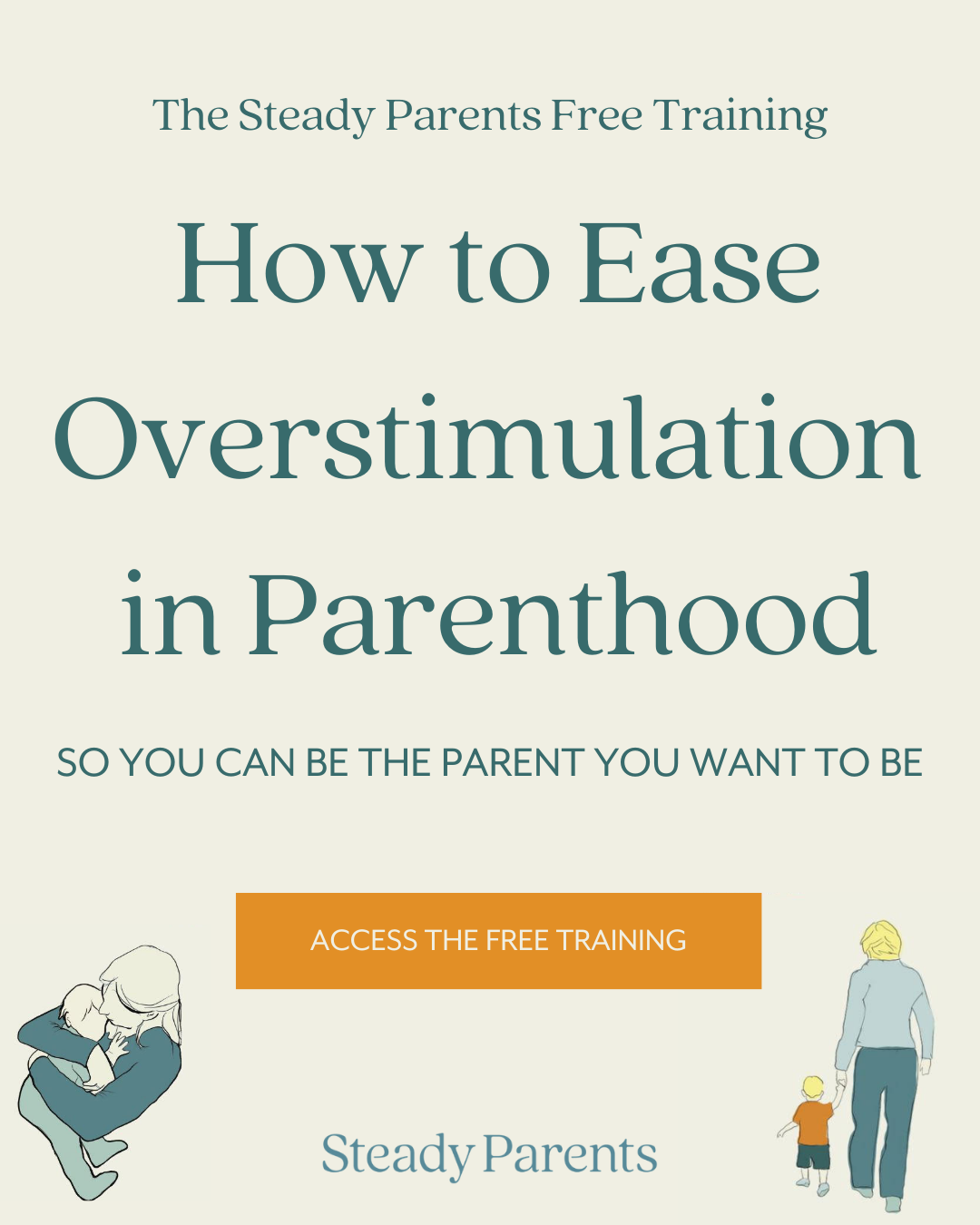Alcohol and Anxiety: How Your Mommy Wine May Be Causing Sensory Overload
A while back, I posted something on my Instagram about how I was making myself a mocktail while cooking dinner, because alcohol makes me get overstimulated and angry pretty quickly when I’m on parenting duty.
I was flooded with responses saying they’ve noticed similar things and reducing that evening drink has made a monumental difference in their ability to handle a frequently challenging part of the day.
Mom wine culture is a term frequently used as a joke on social media and in commercials referring to a parent’s use of alcohol to take the edge off after a stressful day with children.
Though seemingly harmless in nature, it’s important for me as an occupational therapist to acknowledge the effects that alcohol can have on our nervous system.
As we head into this season of more holiday gatherings where you might feel more prone to drink because of anxiety or stress, let this post be a reminder to ask yourself “Will I truly enjoy this drink or am I using it as a coping mechanism that will make me more overstimulated?”
The Impact of Alcohol on Sensory Overload
While the association between alcohol and anxiety is well-documented, the specific link between alcohol consumption and sensory overload is an aspect that deserves attention, especially as it pertains to parents.
Sensory overload occurs when our sensory systems are overwhelmed by stimuli, leading to stress, irritability, and difficulty processing information. Let's delve into how alcohol may contribute to sensory overload, especially in the context of parenting.
Heightened Sensitivity
Alcohol can alter our sensory perceptions, making individuals more sensitive to stimuli. For parents, already managing the constant stimuli of family life, this heightened sensitivity can amplify the challenges of sensory overload.
What might be manageable under normal circumstances can become overwhelming when coupled with the effects of alcohol.
Impaired Processing
Sensory processing involves the brain's ability to organize and interpret information received through the senses. Alcohol, being a central nervous system depressant, can impair this processing.
For parents, this could mean that the usual sensory demands of parenting become more difficult to manage, leading to increased stress and frustration.
Disruption of Sleep Patterns
Many parents indulge in alcohol to unwind, especially in the evening. However, alcohol can disrupt sleep patterns, contributing to fatigue and exacerbating sensory overload.
Lack of quality sleep can intensify sensory sensitivities, making it challenging to navigate the demands of daily life with children.
Emotional Impact
The emotional toll of parenting can be immense, and alcohol's impact on emotions can further complicate matters.
Sensory overload is often accompanied by emotional distress, and alcohol may heighten negative emotions, making it more challenging for parents to regulate their responses to sensory stimuli.
Parental Modeling
Children learn by observing their parents. If parents rely on alcohol to cope with stress or sensory overload, children may internalize this behavior as a coping mechanism. Choosing alternative strategies can not only benefit the parents but also set a positive example for the next generation.
Alcohol consumption at even low levels has been shown to affect our ability to filter out irrelevant information. That means more sensory information gets into higher levels of our brain. Meaning we consciously notice more and have less capacity to do the important things, because there are distractions all around us. (Source: Sklar & Nixon)
Ultimately what does that mean?
It means we get dysregulated more quickly.
And what does THAT mean?
That means parenting is harder and more stressful for everyone.
Does Alcohol Worsen Anxiety?
According to the NIH, the more frequently you consume alcohol, and the greater the quantity per sitting, the more likely a person is to develop temporary anxiety and depressive symptoms.
The impact of alcohol on sensory overload is a topic gaining attention, especially among parents navigating the challenges of parenthood.
What Members of the Steady Parents Community Are Saying About Alcohol and Sensory Overload
If you’ve been considering cutting back on your alcohol consumption since becoming a parent, know that you’re not alone.
“I cut alcohol out completely when I realized it was only making my stress worse.”
“I just recently put 2 and 2 together and realized it’s the evening drinks making me so snappy and overstimulated in the evening leading up to bedtime. It was so eye opening and no longer worth it.”
“I’ve been sober for about a year and a half. As a mom of two, I’m so much more able to regulate myself and it’s a great skill to role model for my kids. I’m happy to teach them they don’t need alcohol to relax and be happy.”
“I’ve had to go sober because I found even occasional drinking does the same thing- really overstimulated and angry!””
“It took me so long to realize it but it stressed me out so much more having “a drink to unwind” while I was still on the mom-clock. Once a week I have a cocktail or two with my husband AFTER everyone goes to bed and I enjoy it so much more.””
If you’re like these parents and have noticed how alcohol affects your mood since having children, remember it doesn’t have to be an all or nothing thing.
Cut down the amount of alcohol you are drinking or the frequency and see if that makes a difference.
You can even try adjusting the time of day you consume alcohol. If you’re someone who likes your happy hour drink before dinner, try moving it until after the kids' bedtime so you can actually unwind without the stress of having to wrangle your kids.
Alcohol Alternatives
When I realized I wanted to cut back on alcohol, I found myself still sometimes craving a fun drink to go with dinner. There are a ton of new reduced or alcohol free products out there to choose from now, so try a few to see if you can make a more permanent swap.
Kombucha or adding berries to sparkling water can be refreshing without all of the added sugar that some mocktails bring.
This article has a list of delicious mocktail recipes, some featuring health benefits like anti-inflammation or gut supporters.
As always, this is a judgment free zone. But my role as an occupational therapist in this setting is to support you in thinking about what might be triggering you, and what changes you can make to help you engage in moments of your life with more steadiness and less stress.
Pin This For Later:








